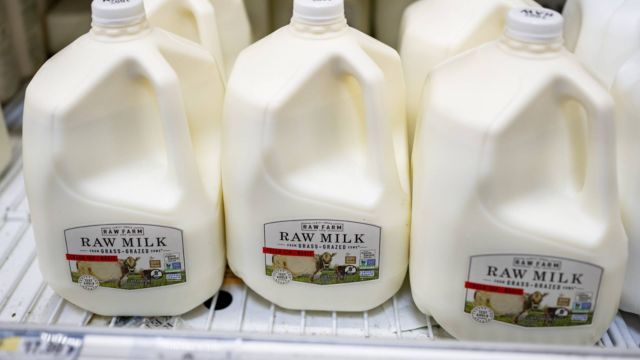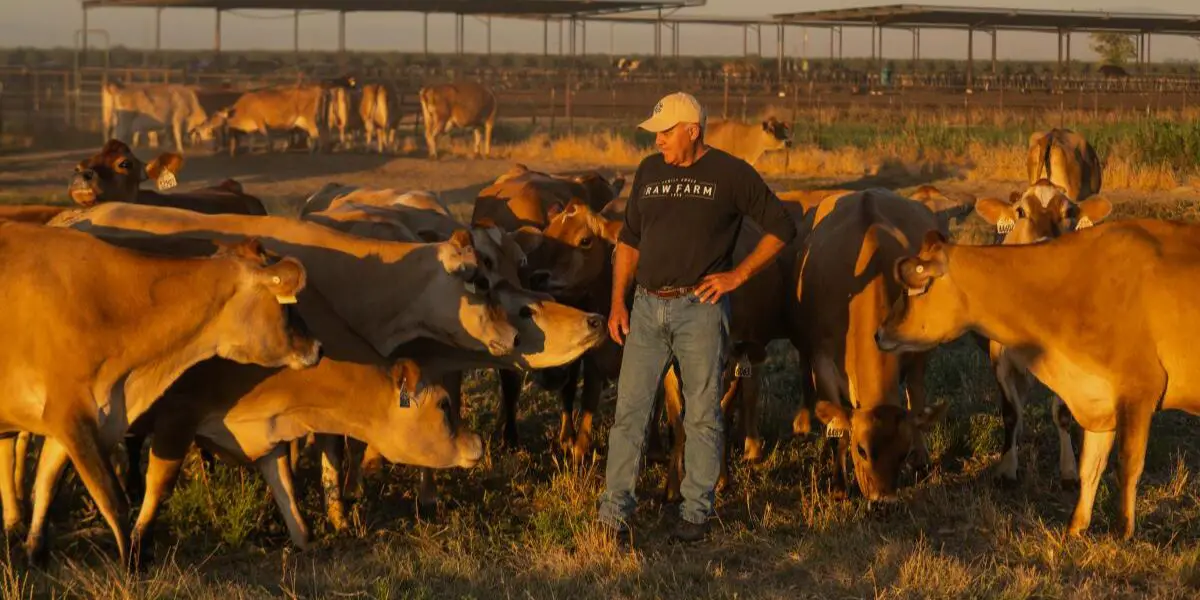In a surprising and concerning move, a major recall of raw milk has been issued in California after it was discovered that the product was contaminated with traces of avian influenza, commonly known as bird flu.
The recall, which affects several counties across the state, has raised alarms among consumers about the safety of raw milk and its potential risks when contamination occurs.
The Recall Announcement
The California Department of Public Health (CDPH) announced the recall earlier this week, advising consumers who purchased specific brands of raw milk to dispose of the product immediately or return it to the place of purchase. The contamination was detected during routine testing of dairy products, which found traces of the bird flu virus in the raw milk.
Though bird flu is primarily known to affect poultry, the potential for cross-contamination through raw milk has led health officials to take immediate action. Raw milk, which is unpasteurized and has not undergone the typical heating process that kills harmful bacteria and viruses, can pose significant health risks if contaminated with pathogens like avian influenza.
A Growing Concern: Bird Flu and Milk Contamination
Bird flu, a viral infection primarily affecting birds, has occasionally spread to mammals, including humans, though such cases are rare. The primary concern with the contamination of raw milk is that the virus could pose a risk to consumers, particularly those with weakened immune systems, the elderly, and young children. While the risk of transmission through milk is still being investigated, the recall aims to protect public health by removing potentially dangerous products from store shelves.
“We are working closely with the dairy producers and retailers to ensure that affected products are swiftly removed from the market,” said a spokesperson from the California Department of Public Health. “The safety of consumers is our top priority, and we are taking all necessary steps to address this issue.”
Which Products Are Affected?

The recall affects several batches of raw milk from local California dairies, which were distributed to supermarkets and specialty stores throughout the state. The affected products include both whole and skim raw milk, sold in various sizes, and labeled with a specific sell-by date. The CDPH has provided a full list of the affected product details on its website, including batch numbers and retail locations, for consumers to reference.
Consumers who purchased the affected milk are urged to check the packaging and compare it with the recall information. If they find that they have purchased any of the recalled milk, they should return it to the store for a full refund or dispose of it immediately.
What Does This Mean for Raw Milk Consumers?
WHO Confirms Mexican Bird Flu Patient’s Death Due to Other Health Issues
For raw milk enthusiasts, this recall raises questions about the safety of unpasteurized dairy products. While raw milk has gained popularity in recent years due to claims of health benefits such as improved digestion and immune support, health experts have long warned about the risks associated with consuming raw, unpasteurized milk.
Raw milk can carry a variety of harmful pathogens, including E. coli, Salmonella, and Listeria, which can cause severe illness. The pasteurization process, which involves heating the milk to a specific temperature to kill off harmful bacteria and viruses, is a critical step in ensuring the safety of dairy products. The bird flu contamination highlights that even in rare cases, raw milk can be exposed to other viruses, adding another layer of concern.
For those who enjoy raw milk, it may be a good time to reconsider consumption until more information becomes available on the contamination risks associated with it.
What Are Health Officials Saying?
Health experts have urged consumers to avoid raw milk during this recall and to seek pasteurized alternatives to reduce the risk of illness. While the likelihood of contracting bird flu through raw milk is low, health officials have advised that the potential for contamination is serious enough to warrant caution.
Texas Ethics Commission Mandates Disclosure for Political Payments by Social Media Influencers
“People should always be cautious when consuming raw milk or other unpasteurized dairy products,” said Dr. Sarah Jones, a public health expert at the University of California. “While the risk of bird flu transmission through milk is still being assessed, raw milk has historically been linked to various types of bacterial and viral infections. It’s always safer to choose pasteurized products, especially during recalls like this.”
What Happens Next?
At this point, health officials are continuing to investigate how the contamination occurred and whether the affected milk came from a specific poultry operation or was exposed to bird flu through another means. In the meantime, consumers are advised to stay informed through the CDPH website, where updates on the recall will be posted regularly.
As California works to mitigate the risks associated with the raw milk contamination, consumers are encouraged to stay alert and check any milk products they may have purchased. For those who prefer raw milk, the recall serves as a reminder of the risks associated with consuming unpasteurized products.
Conclusion
The bird flu contamination that has led to the recall of raw milk in California serves as an important reminder about the potential dangers of consuming unpasteurized dairy. While the recall may be a temporary issue, it underscores the need for consumers to stay informed and be cautious about the food products they purchase, particularly those that come with inherent health risks.
Health officials continue to monitor the situation closely and provide updates as more information becomes available. In the meantime, consumers are advised to return or discard any affected products and choose pasteurized milk alternatives to ensure their safety.




